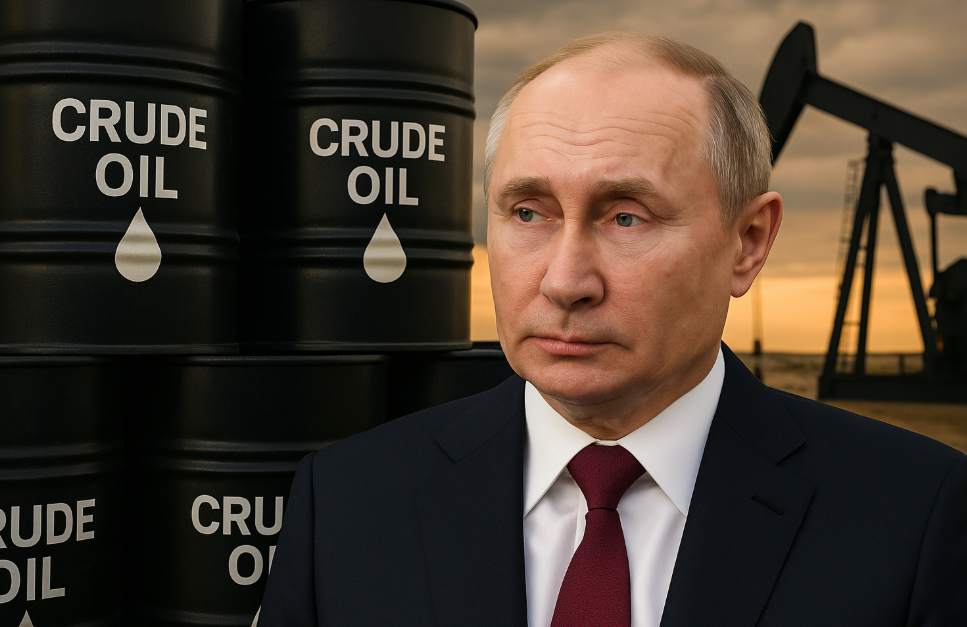Russian President Putin Says No Urgent Action Needed as Oil Prices Surge Amid Israel-Iran Conflict:In a week of wild swings in the global oil markets, crude prices have surged sharply amid escalating tensions between Israel and Iran. Yet, Russian President Vladimir Putin remains calm, suggesting no urgent intervention is needed from OPEC Plus. As markets await the key OPEC Plus meeting on July 6th, producers like Saudi Arabia signal readiness to increase output if required. Read the full analysis of how geopolitical tensions, oil price volatility, and Putin’s strategy are shaping the future of the global energy market.
Russian President Putin Says No Urgent Action Needed as Oil Prices Surge Amid Israel-Iran Conflict
It has been a rollercoaster week in the global oil markets, with crude oil prices witnessing a significant surge driven by escalating geopolitical tensions and market uncertainties. Over the past few weeks, crude prices have surged from below $63 per barrel at the end of May to over $76 this week. This sharp jump of over $10 has sent shockwaves through energy markets and brought volatility to its highest levels since 2022.
The primary driver behind this heightened volatility has been the ongoing back-and-forth military strikes between Israel and Iran. The military conflict in the Middle East — a region that plays a crucial role in global energy supply — has raised concerns about possible disruptions in oil production and transportation routes, contributing to the sharp swings in prices.
However, despite these concerns, Russian President Vladimir Putin has downplayed the impact of the Israel-Iran conflict on the global oil market. Speaking on the current situation, Putin stated that the tensions between the two nations have had “little impact” on oil prices so far. According to him, the global oil market remains relatively stable, and there is currently no urgent need for key producers to intervene or take immediate corrective measures.
Putin emphasized that producers should avoid any hasty decisions and continue to observe market dynamics closely. He highlighted that the OPEC Plus alliance, which includes major oil-producing nations such as Russia and Saudi Arabia, is scheduled to hold a video conference on July 6th to reassess the situation. During this meeting, members will analyze the evolving market conditions and may consider a possible production increase for August if necessary.
Notably, many OPEC Plus member states, including several Gulf nations, have the capacity to increase production if the situation demands it. Saudi Arabia, the de facto leader of OPEC, has expressed its readiness to implement additional “supersized” production increases to regain lost market share quickly. The kingdom remains flexible and poised to act swiftly should global supply-demand dynamics shift further.
Nevertheless, Putin was clear that any potential increase in oil supply would be executed in a coordinated manner through consensus within the OPEC Plus framework. This approach aims to avoid destabilizing the market further while ensuring that oil prices remain within a reasonable and sustainable range that benefits both producers and consumers.
As the global oil market remains on edge, all eyes are now on the upcoming OPEC Plus meeting in early July. Market participants will be watching closely for any signals regarding production adjustments and how key producers plan to navigate the ongoing geopolitical uncertainties that continue to fuel volatility across energy markets.
Disclaimer:
The information provided in this article is for general informational purposes only. While every effort has been made to ensure the accuracy and completeness of the content, the global oil market is highly volatile and subject to rapid changes due to geopolitical, economic, and market factors. The views and statements attributed to political leaders and organizations are based on publicly available information at the time of writing and do not represent the official stance of this blog.
Readers are strongly advised to conduct their own research, consult with financial experts, and consider the rapidly evolving nature of global events before making any investment or trading decisions related to oil markets or any financial assets. This blog shall not be held responsible for any losses, damages, or consequences arising from the use or reliance on the information provided herein.

